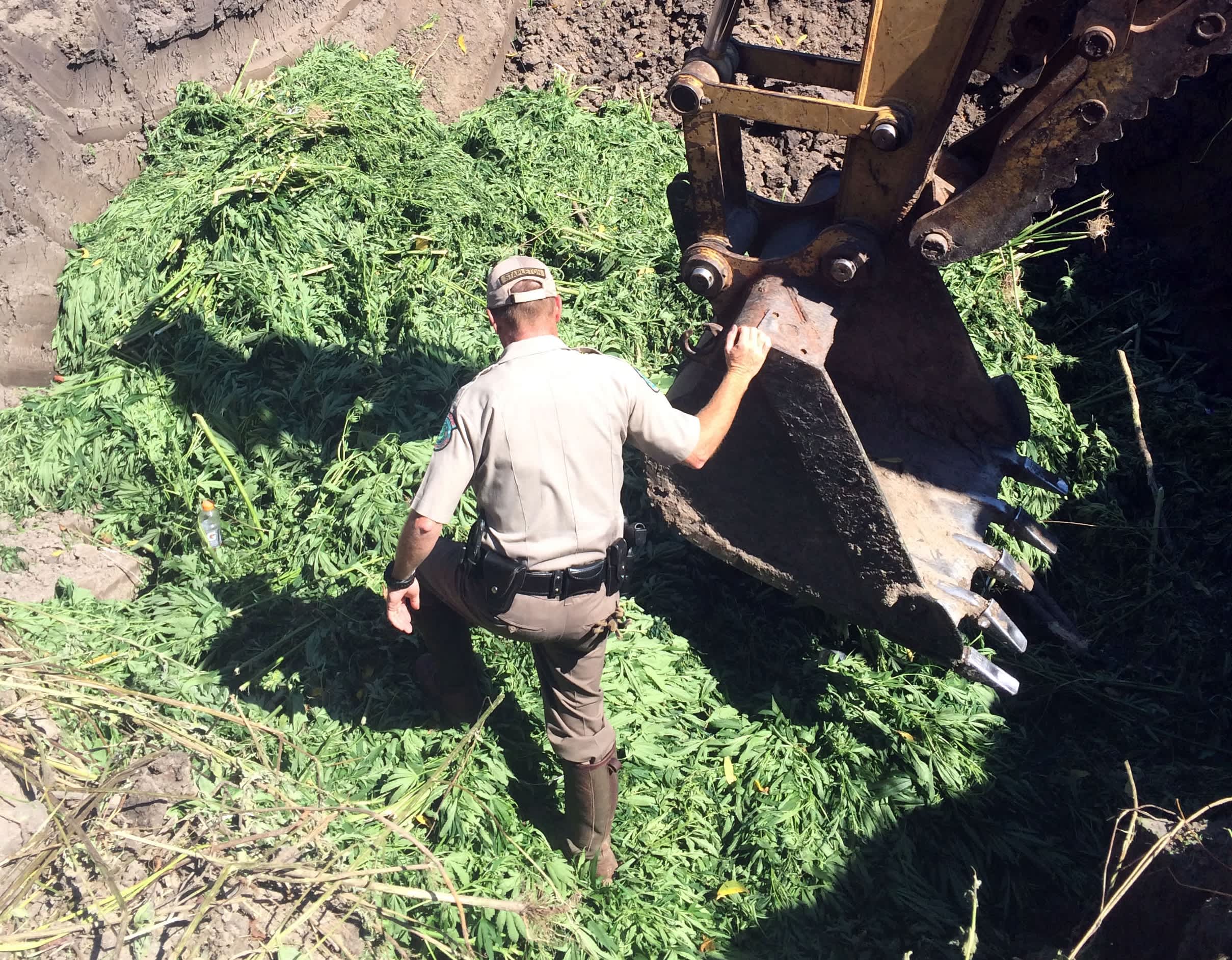Texas Hog Hunters Discover Sprawling $6 Million Weed Farm
OutdoorHub Reporters 09.21.15

Officials with Texas Parks and Wildlife announced last week that officers raided a large and sophisticated marijuana growing facility in the remote swamps of northeast Texas. About 80 miles north of Dallas and inside the 14,480-acre Cooper Wildlife Management Area, several hog hunters stumbled into a sprawling marijuana farm that held more than 6,500 mature plants.
Texas officials said that if not for the occasional report from hikers, hunters, and other adventurous outdoorsmen, many of these operations would never be found. Even so, illegal marijuana cultivators have learned to avoid the most popular hunting seasons.
“They would’ve folded up shop by October 1 ahead of archery deer season opening, but obviously didn’t figure in the opening of teal and feral hog hunting season in mid-September,” said Texas game warden Steven Stapleton.
The discovery of the facility led to a multi-agency investigation and officials pulled out all the stops in an attempt to capture the culprits. Game wardens were aided by deputies from Delta and Hopkins County Sheriff’s Offices, canine units from the Texas Department of Criminal Justice, and troopers from the state Department of Public Safety. Despite an extensive search of the area, officials made no arrests. They did, however, find a well-stocked camp site with tents, farming equipment, fertilizer, a generator, and machinery for irrigation. Officers indicated that the camp had likely been operating for a long time before it was discovered.
“This was not someone playing around and experimenting,” said Stapleton. “The camp was at least a mile from any road in some harsh conditions. They picked this spot on purpose and spent day and night out there for some time. There was a lot of trash to clean up.”

Illegal marijuana farms leave behind a lot of litter, and, more importantly, cause significant environmental damage. This is most visible on the West Coast, where such farms have been known to choke rivers with their water use and poison local wildlife.
“The destruction to the habitat and the damage these people did to the environment is probably the worst part,” said Texas Game Warden Chris Fried. “They cut mature hardwood trees, including a pin oak that was at least five foot in diameter, and cleared parts of a levee that will take many years to recover. The chemicals they sprayed, insecticides and pesticides that contaminated the soil and eventually run off into the streams will have lasting impacts.”
Officials said the marijuana crop, which was valued at $6 million, was destroyed.
These farms can also be dangerous to passing hikers or hunters, as some criminals will go to great lengths to keep their operations a secret. Authorities warn anyone who finds one of these camps to leave at once and report it to law enforcement.

